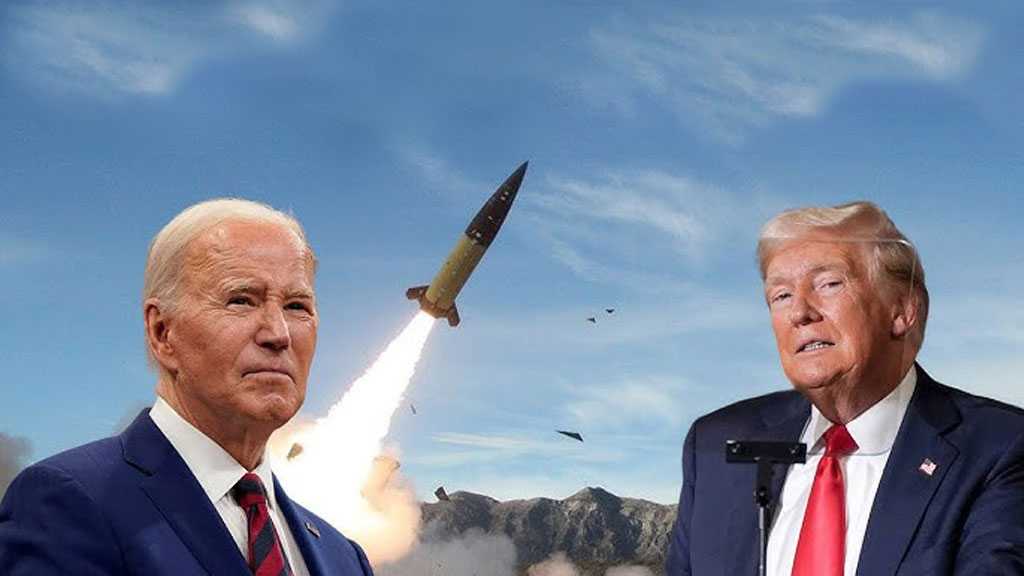America΄s Role in Russo-Georgian War

Source: Alalam.ir, 21-8-2008
IN YEARS to come, the short, sharp Russo-Georgian war may be remembered as the nadir of American post-Cold War power and influence - the moment in the closing months of George W. Bush's hapless administration when all the damage that he has done to America's position in the world came into focus.
The United States encouraged Georgia into thinking it was under American protection, built up and trained its armed forces with a little help from the "Israeli"s, established one of the biggest embassies in the region to make it a center of American influence in the Caucasus, and, despite private warnings, issued public statements of undying support. And now America's client is wiping blood from its nose. The wreckage of Georgia's towns and countryside, however, is not as complete as the ruin of Bush's policies.
Having misread America's mixed signals, it is Georgia's Mikheil Saakashvili who deserves much of the blame. He wanted to restore the breakaway enclaves of South Ossetia and Abkhazia to Georgian control. He badly overplayed his hand. Perhaps he really thought that the patronage of the United States would enable him to get away with rattling the bear's cage. Saakashvili played his America card and found it to be a deuce.
As for Russia, it wanted to reassert itself in the region, and Saakashvili gave it the opportunity. The United States has to stand with Saakashvili now, but when this is over, and when the Russians have withdrawn, he should be spanked.
South Ossetia and Abkhazia clearly do not want to be part of Georgia. The Russians were willing to let stand the ambiguous status of both enclaves - nominally part of Georgia but not under Georgian control. But Saakashvili thought he saw his chance while the world was watching the Olympic Games and sent his troops to upset the delicate status quo.
There are many such ambiguous territorial situations around the world. China claims Taiwan as an integral part of its territory, but is willing to allow de facto independence as long as Taiwan doesn't declare de jure independence.
Kosovo used to be another useful ambiguity. Legally an integral part of Serbia with historical and emotional ties going back half a millennium, the region has an Albanian majority who, like the Abkhazians and Ossetians, didn't want to be part of the country they found themselves in at Cold War's end.
The Russians were furious when Europe and the United States backed Kosovar independence, and last week's military assault into Georgia was partly a payback. But Georgia's military grab for South Ossetia, which has its own language and culture, was too much for Russia to take. One can imagine the American and NATO reaction if Serbia tried to invade Kosovo.
The United States needs Russia's support on a host of issues: containing Iran, combating terrorism, nuclear proliferation, the Middle East. Despite Russia's warnings, however, the United States has steadfastly ignored Russia's interests. Expanding NATO eastward is one example, "a solution for which there was no problem," as the saying goes.
Taking former bits of the Soviet Union into NATO is a needless provocation - especially Georgia's entry, which the Bush administration backs. For say what you will about NATO no longer being an anti-Russian alliance, no one in Russia believes it. And no one in Georgia or Ukraine believes it either.
The missile defense shield in Poland and the Czech Republic is another example of sticking it in Russia's eye. Given the administration's attitude toward Moscow's interests, it was only a matter of time before Russia pushed back.
And so you have disillusioned Georgians wringing their hands and wondering if they put too much faith in America. Other countries in the region will draw their own conclusions as America looks both weak and feckless.
Russia feels about the Caucasus as the United States views Central America - its own backyard, an area not to be trifled with. Georgia has become Russia's Cuba, and in the brutish way of the old Soviet era, Russia is determined to teach Georgia and the West a lesson.
Secretary of Defense Robert Gates says Moscow's actions have forced a profound rethinking of America's relations with Russia. Pity there isn't a profound rethinking of America and Georgia's actions as well.
THE BOSTON GLOBE
IN YEARS to come, the short, sharp Russo-Georgian war may be remembered as the nadir of American post-Cold War power and influence - the moment in the closing months of George W. Bush's hapless administration when all the damage that he has done to America's position in the world came into focus.
The United States encouraged Georgia into thinking it was under American protection, built up and trained its armed forces with a little help from the "Israeli"s, established one of the biggest embassies in the region to make it a center of American influence in the Caucasus, and, despite private warnings, issued public statements of undying support. And now America's client is wiping blood from its nose. The wreckage of Georgia's towns and countryside, however, is not as complete as the ruin of Bush's policies.
Having misread America's mixed signals, it is Georgia's Mikheil Saakashvili who deserves much of the blame. He wanted to restore the breakaway enclaves of South Ossetia and Abkhazia to Georgian control. He badly overplayed his hand. Perhaps he really thought that the patronage of the United States would enable him to get away with rattling the bear's cage. Saakashvili played his America card and found it to be a deuce.
As for Russia, it wanted to reassert itself in the region, and Saakashvili gave it the opportunity. The United States has to stand with Saakashvili now, but when this is over, and when the Russians have withdrawn, he should be spanked.
South Ossetia and Abkhazia clearly do not want to be part of Georgia. The Russians were willing to let stand the ambiguous status of both enclaves - nominally part of Georgia but not under Georgian control. But Saakashvili thought he saw his chance while the world was watching the Olympic Games and sent his troops to upset the delicate status quo.
There are many such ambiguous territorial situations around the world. China claims Taiwan as an integral part of its territory, but is willing to allow de facto independence as long as Taiwan doesn't declare de jure independence.
Kosovo used to be another useful ambiguity. Legally an integral part of Serbia with historical and emotional ties going back half a millennium, the region has an Albanian majority who, like the Abkhazians and Ossetians, didn't want to be part of the country they found themselves in at Cold War's end.
The Russians were furious when Europe and the United States backed Kosovar independence, and last week's military assault into Georgia was partly a payback. But Georgia's military grab for South Ossetia, which has its own language and culture, was too much for Russia to take. One can imagine the American and NATO reaction if Serbia tried to invade Kosovo.
The United States needs Russia's support on a host of issues: containing Iran, combating terrorism, nuclear proliferation, the Middle East. Despite Russia's warnings, however, the United States has steadfastly ignored Russia's interests. Expanding NATO eastward is one example, "a solution for which there was no problem," as the saying goes.
Taking former bits of the Soviet Union into NATO is a needless provocation - especially Georgia's entry, which the Bush administration backs. For say what you will about NATO no longer being an anti-Russian alliance, no one in Russia believes it. And no one in Georgia or Ukraine believes it either.
The missile defense shield in Poland and the Czech Republic is another example of sticking it in Russia's eye. Given the administration's attitude toward Moscow's interests, it was only a matter of time before Russia pushed back.
And so you have disillusioned Georgians wringing their hands and wondering if they put too much faith in America. Other countries in the region will draw their own conclusions as America looks both weak and feckless.
Russia feels about the Caucasus as the United States views Central America - its own backyard, an area not to be trifled with. Georgia has become Russia's Cuba, and in the brutish way of the old Soviet era, Russia is determined to teach Georgia and the West a lesson.
Secretary of Defense Robert Gates says Moscow's actions have forced a profound rethinking of America's relations with Russia. Pity there isn't a profound rethinking of America and Georgia's actions as well.
THE BOSTON GLOBE




